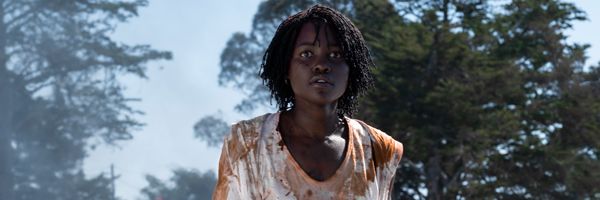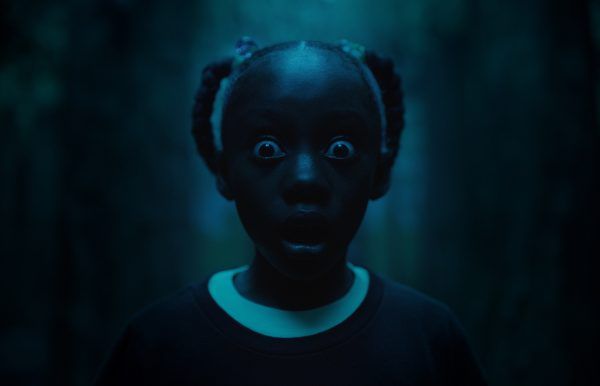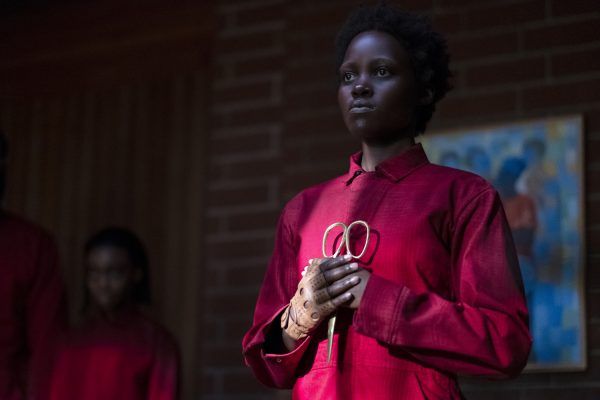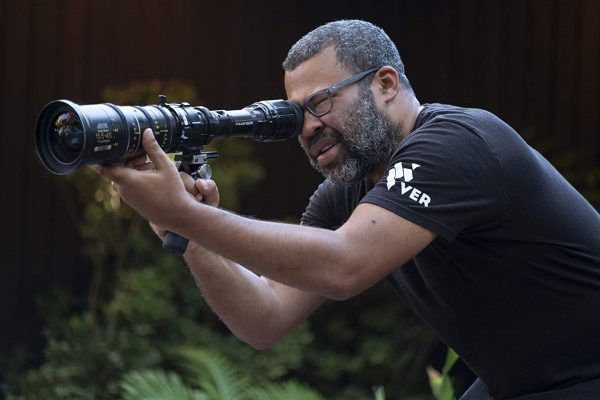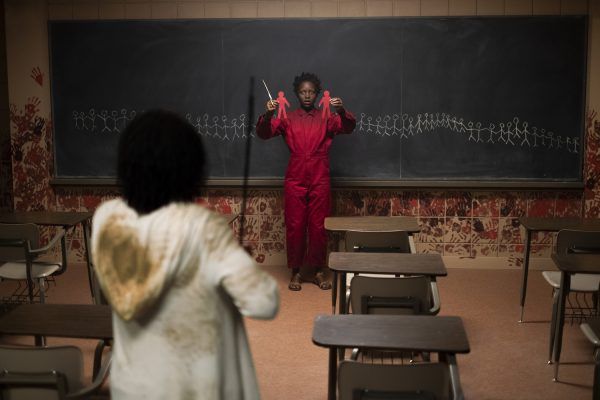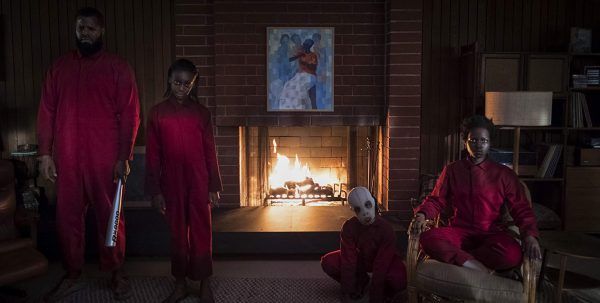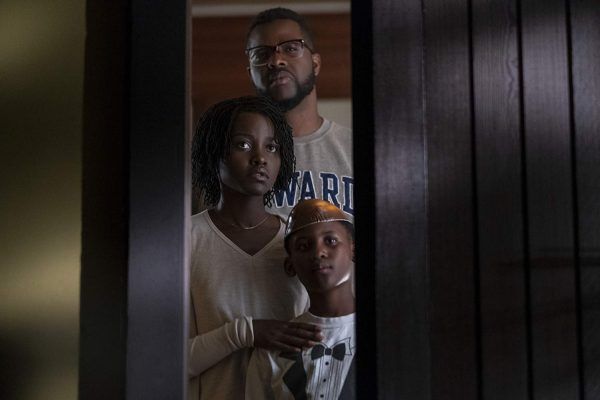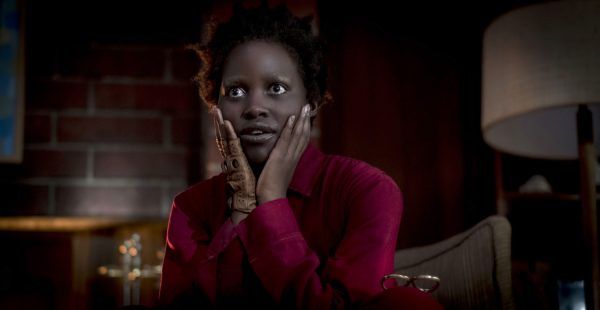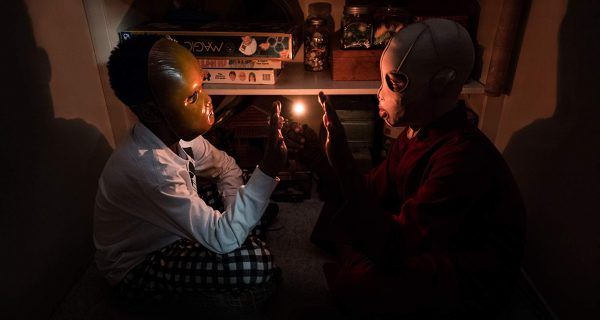Major spoilers for Us follow below.
If Get Out proved that Jordan Peele is an explosive new talent behind the camera, his second film Us showed that this was no fluke—Peele is the real deal, and he’s creating stories that provoke serious discussion. Us opened in theaters last weekend to box office records and critical acclaim, but it also sparked a conversation. As opposed to some box office blockbusters that are simply fine and easy to forget a day (or even hours) after you’ve seen them, Us is a film that demands discussion and further thought after it’s over. Indeed, you kind of can't stop thinking about it.
That’s not only due to the layered, challenging narrative that Peele presents—one in which a family is confronted with their exact doppelgängers—but also a whopper of a twist ending, which recontextualizes the entire movie. And now Peele is offering some insight into what that Us twist was all about.
To recap: The opening scene of us found a young Adelaide wandering away from her family at the beach into a creepy funhouse, where she met her doppelgänger Red. The beginning of the film leads us to believe Adelaide was traumatized by the event, and when adult Adelaide (played by Lupita Nyong’o) returns to the scene of the crime with her family, she’s greeted once again by her doppelgänger Red, this time with an entire doppelgänger family.
As it turns out, Red led an uprising of the “Tethered” people underground, and in the events of the film they rise up, kill their human others, and re-enact the Hands Across America stunt from the 1980s.
But the final moments of the film flash back to that opening sequence to reveal that when young Adelaide met her doppelgänger Red as a child, Red kidnapped her, tied her up underground, and took her place aboveground with her family. She got out of a bad situation, made a new life for herself, and never looked back. And the adult “Red” we’ve seen throughout the whole film is really that young Adelaide from the beginning of the movie, who’s spent the last three decades underground coming to terms with her situation and planning her revenge.
Appearing on the Empire podcast for a spoiler-filled talk about Us, Peele offered a bit of insight into the Us twist ending, and why it was necessary from a thematic point of view:
“This movie’s about maybe the monster is you. It’s about us, looking at ourselves as individuals and as a group. The protagonist in the movie is the surrogate for the audience, so it felt like at the end of the day, I wasn’t doing my core theme any justice if I wasn’t revealing that we have been the bad guy in this movie. We’ve been following the villain. I say villain lightly because I think there are many experiences of the film, and I think a lot of people go through a question of what is good and evil? Does that even exist? Both characters are lovable and terrifying, based on the lives they’ve led they’ve just sort of inverted the paths.”
One of the major takeaways from the film for me personally was the idea of privilege—that the young Red got out of the “ghetto” to lead a life of privilege (i.e. “pulled herself up from her bootstraps,” so to speak), but never looked back or considered the other, less-fortunate Tethered individuals she left behind. Adelaide, on the other hand, was plucked out of her relatively privileged life and damned to America’s underbelly for thirty years, which is what spurred her to take violent action.
Peele talked about this idea of privilege during the interview, noting that these thematic implications hinge on the "nature vs. nurture" debate:
“I think one of the questions that’s raised is privilege, and the neglect that sort of presumption of deserved privilege requires. And when people are on the other side of it, when people have received the rough end of the nurture argument, and they rebel or act in violence or commit crimes on that side, is that evil or is that circumstance?”
This is an incredibly lofty and relevant idea for a horror movie about murderous monsters wielding scissors, but it’s yet another example of Peele’s brilliance when it comes to packing challenging ideas into an entertaining film. To that end, there’s really nothing in Us that’s coincidental, as Peele also revealed that the film’s opening scene provides clues to what would shape young Adelaide’s life below ground:
“That was an intentional reflection, seeing the girl with her scissors cutting the paper dolls while watching—everything that she’s gonna use in her expression and her journey at the end of the film is kind of in there, in that scene somewhere… The muzak that’s playing over the Hands Across America commercial is “Le Fleurs”, the song that we kick in in full in our final Hands Across America.”
Indeed, if you’ll recall, one of the VHS boxes alongside the TV in the opening scene is The Goonies, and at the end of the film, during the big confrontation scene underground, the paper-doll-cutting Adelaide directly quotes the “It’s our time now” speech from that film. She’s been fixating on her previous life all this time, with her growth and development stunted by her sudden kidnapping by Red. She’s been cut off from all pop culture beyond 1986, much of which is on display in that opening scene.
As for the final scene between “Adelaide” and Jason in the car, in which Jason appears to give his mother a knowing glance, Peele wants to keep that one ambiguous:
“Adelaide and Jason sharing that moment at the end, I’m purposefully leaving it a bit vague as to what exactly he knows or how far he’s come in figuring out what, if anything, he’s figured out. I think the little smile she gives him is a lot of things. I think it’s a connection to the evil smile she once had as a little girl, but also a sort of understanding that her family unit was stronger from this experience.”
That there’s still so much to discuss and unpack from Us after all this is a testament to the thought and care Peele put into crafting the film in the first place, and I can’t wait to watch it over and over and see how many different reads on the film and its themes materialize. That’s the mark of a great filmmaker.
Here’s hoping Peele keeps creating original stories like Us and Get Out for many years to come.
For more on Us, peruse links to our recent content below:
- Unpacking Our Favorite 'Us' Theories and Explainers
- 'Us' Ending Explained: The Most Terrifying Cut of All
- 'Us' Explained: When the "Why" Is More Interesting Than the "How"
- 'Us': Lupita Nyong'o and Winston Duke on the Film's Mythology and Jordan Peele's Process

